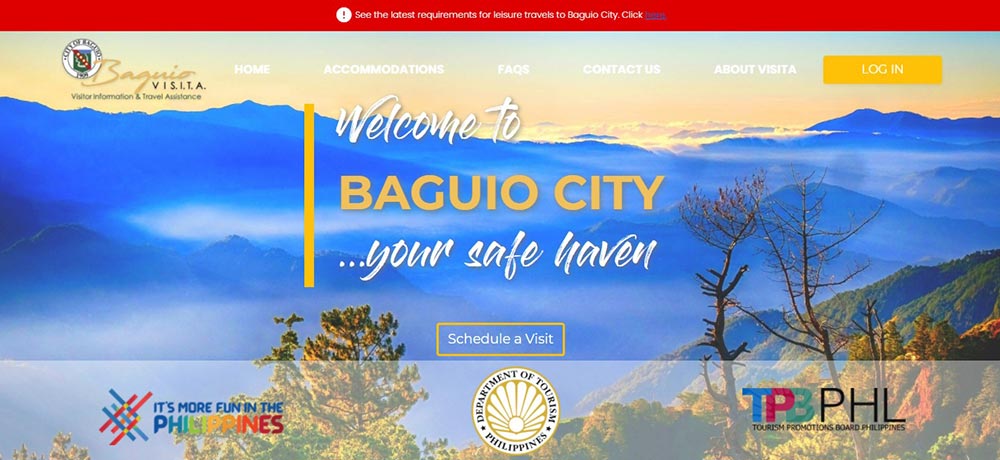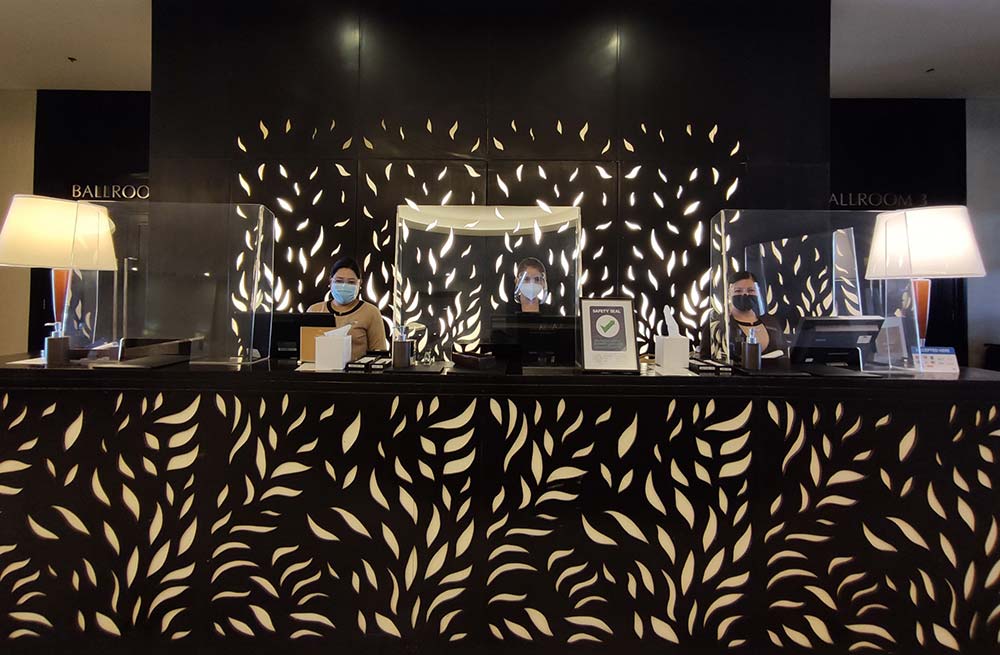According to Tourism Secretary Berna Romulo-Puyat, the ultimate aim of smart tourism is to enhance the industry’s sustainability through the use of technological innovations and practices.
The Department of Tourism (DOT) announced that it has funded the digital transformation projects of several local government units (LGUs) through the Tourism Promotions Board (TPB) Philippines as part of its efforts to push for smart tourism in the country.
“Digital innovations are playing a crucial role in the recovery of the tourism industry. Not only do they improve the efficiency of business operations, and promotions, they also allow for a safer environment through contactless transactions, virtual meetings, and visitor registration and monitoring,” said Tourism Secretary Berna Romulo-Puyat.
As of June 2021, the TPB has downloaded a total of P111,653,600.00 to LGUs for smart tourism projects involving the development of the VIS.I.T.A. platform (an online visitor management and monitoring system), local tourism websites and mobile applications, and digital marketing tools.
“One of the Department of Tourism’s strategic objectives is the pivot to SMARTourism. We want to strengthen digital platforms, ensure data-driven planning, and expand other tools for promotions and marketing,” Puyat said.
“Smart tourism is defined according to technological capabilities of a particular destination, attraction or the tourists themselves. Just like any other destination, the ultimate aim of smart tourism is to improve the efficiency of resource management, upgrade the level of our competitiveness, and to enhance sustainability through the use of technological innovations and practices,” she added.
With Baguio City having led the development and deployment of the V.I.S.I.T.A. app in October 2020, recipients of this now include the regions of Ilocos and Pangasinan, Central and Eastern Visayas, Northern Mindanao, Metro Manila, and the provinces of Bohol, Marinduque, Oriental Mindoro, Quirino and Zambales, and the cities of Bacolod, Davao, Dumaguete, Iloilo, Tuguegarao, and the municipalities of Agoncillo, El Nido and Pasil.
Funded and supported by BOT and TPB, the Baguio VIS.I.T.A. (Visitor Information and Travel Assistant) is the online registration system for Baguio tourists and travelers. It has become an instrumental tool for the city’s cautious re-start of tourism activities and gradual re-opening of the local economy.
The Baguio VIS.I.T.A. was designed as a general digital system that can regulate entry and monitor mobility of visitors through a ticketing system using a QR-coded Tourist Pass (QTP), and at the same time implementing the city’s health and safety protocols, from the mandated triaging up to digital check-ins for contact tracing.
In the future, as part of Baguio’s thrusts towards responsible and sustainable tourism, the Baguio VIS.I.T.A. will serve as the online portal for tourists, whose VIS.I.T.A accounts shall serve as a personal guide and assistant when traveling to Baguio. Pre-arrangements such as bookings, itinerary maker and payment of regulatory fees, and on-site assistance such as attractions, events, services, and even emergency directories and connectivity shall be incorporated.
A recent output of the funding is the launch of Oriental Mindoro’s tourism website www.travelorientalmindoro.ph and mobile application “Lakbay Oriental Mindoro” last July 8 as a digital travel guide to the province’s 14 municipalities.
Through the TPB Philippines, the DOT has funded various programs and projects focusing on securing health and safety and restoring confidence of the consumers; refocusing packages and promotional specials; and marketing and communication of promotional materials.
These programs include the partnership with the Philippine Children’s Medical Center (PCMC) and the University of the Philippines-Philippine General Hospital (UP-PGH) to subsidize 50 percent of the hospitals’ RT-PCR testing cost for qualified domestic tourists who only need to pay P750 for the RT-PCR test in PCMC and P900 UP-PGH.
The TPB funding also extends to programs that uphold sustainable initiatives and responsible travel, such as community immersion and interaction which are non-exploitative and not staged; slow food, slow travel concept providing added value to travelers, farm-to-table activities, and health and wellness activities.





